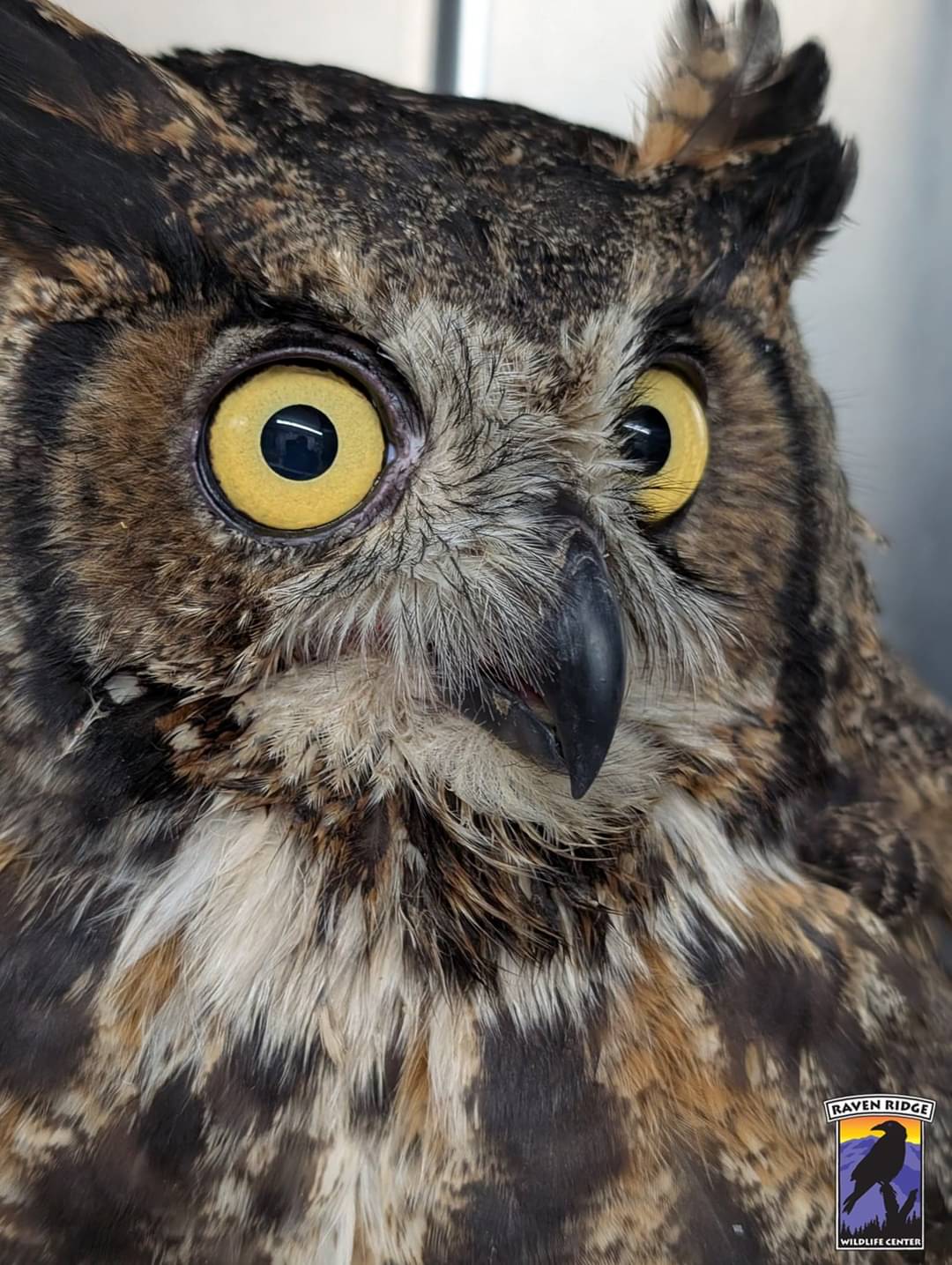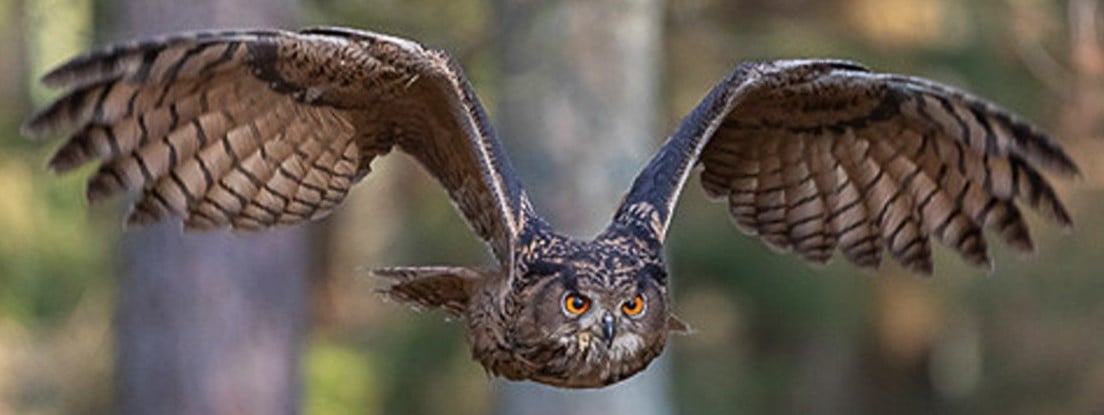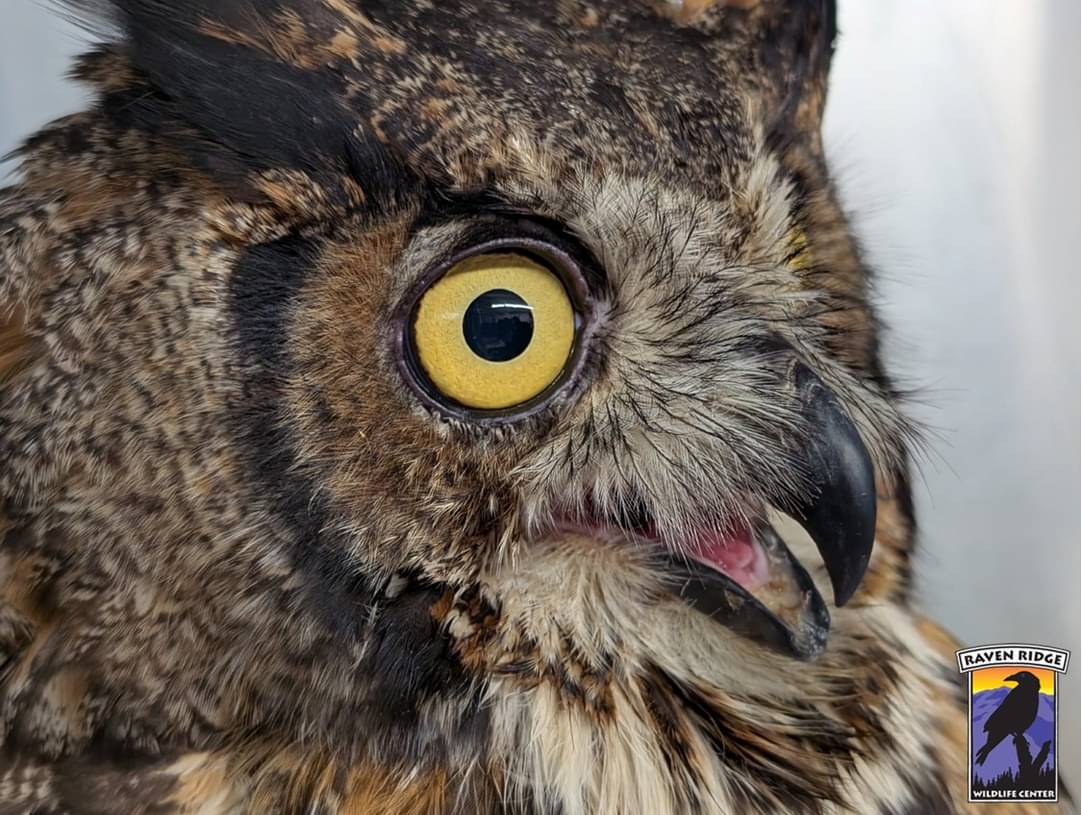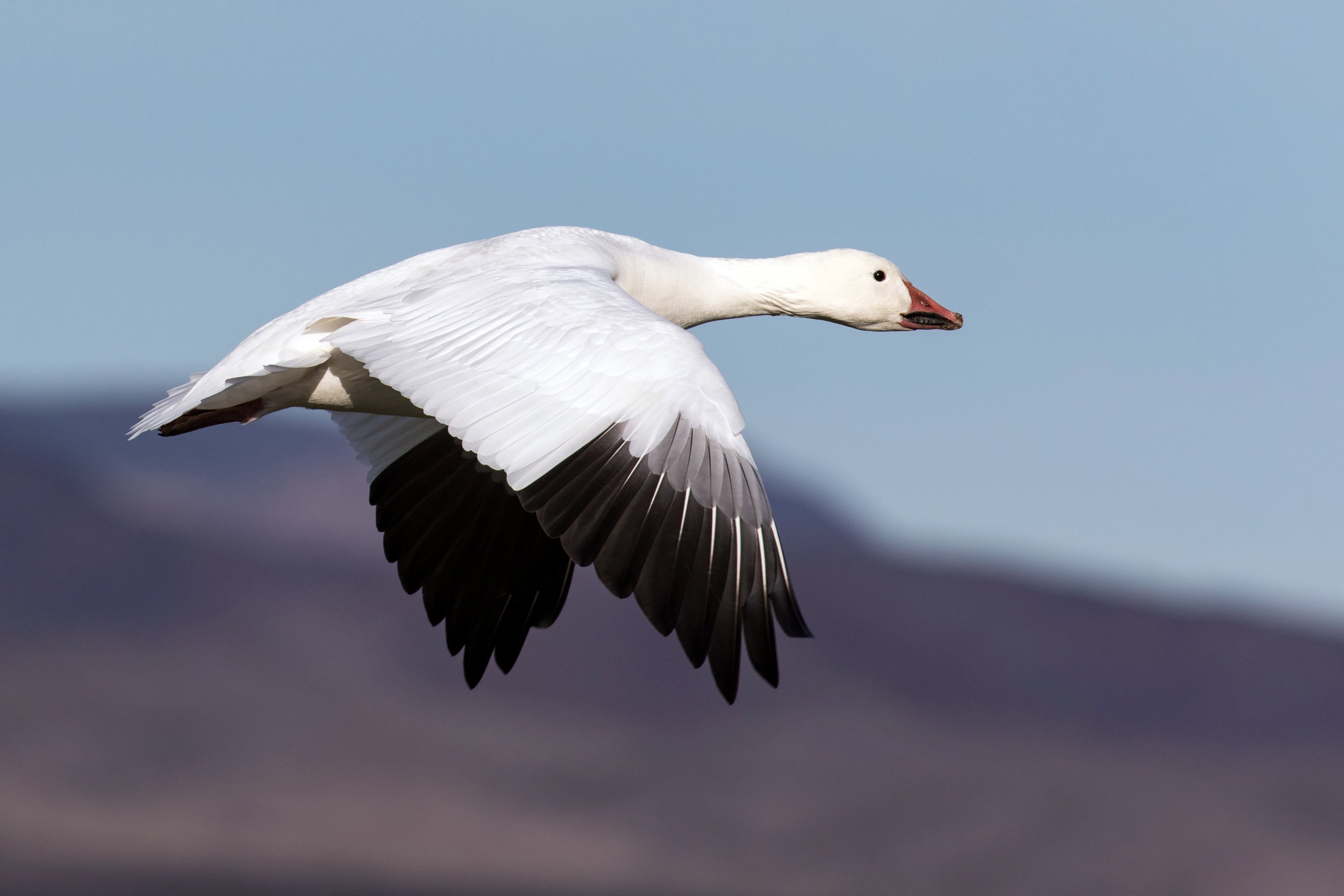A great update on a patient we highlighted last weekend!
From Raven Ridge Wildlife Center
We welcomed this Great Horned Owl into our clinic on December 30th, and the sight of its poor physical condition deeply concerned our rehabilitator. After careful examination, the underlying cause of the owl's sickness was identified: a severe case of trichomoniasis (also known as frounce in raptors and canker in pigeons and doves). This contagious disease, caused by a parasite, affects the upper gastrointestinal tract, leading to painful lesions in critical areas such as the mouth. As the condition progresses, it severely compromises the bird's ability to eat, drink, and breathe.
The responsible protozoan, Trichomonas gallinae, has multiple strains; some produce clinical symptoms while others do not. While primarily affecting pigeons and doves, this disease can also impact raptors and, on rare occasions, waterfowl and upland game birds can be infected. Domestic birds, such as turkeys and chickens, are at risk as well. It's important to note that this protozoan does not pose a threat to humans.
The good news is that the owl is responding positively to treatment, and its condition is not as dire as we first feared. The bird is full of energy and is eating, which is a strong sign of improvement. We are closely monitoring its progress and waiting for significant healing of the infected area so that we can evaluate any lasting damage and determine the best approach for treating the laceration. Although the rehabilitation process will be lengthy, we are committed to providing this magnificent owl with everything it needs for a successful recovery.





